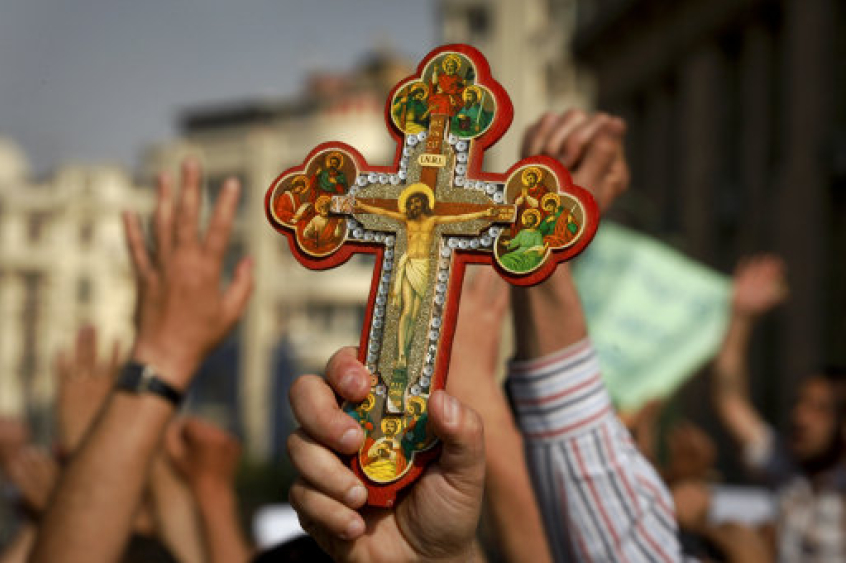
Just how large those numbers are, however, is a matter of educated conjecture, according to a new report on Christian migration from the Middle East.
A precise accounting is impossible, but report author Markus Tozman says seeking accuracy is important because the fate of the Christian population in the Middle East affects human rights in the region, as well as power structures across the Arab world.
"The real number of Christians in the Middle East is highly contested and part of an ongoing debate. It fluctuates depending on the group presenting the numbers and therefore on the intentions of the respective group," the report says.
Tozman is a graduate student of the Middle East at Johns Hopkins University, and former assistant to Tweede Kamer der Staten-Generaal, a member of The Netherlands parliament whose portfolio at the Council of Europe includes minority protection in the Middle East. Tozman is a contributing author to a 2012 book documenting the gradual disappearance of Syriac Orthodox Christians from their native Turkey.
The report is published by the World Watch List, a research group that issues an annual ranking of the 50 countries where Christians are under the most pressure for their faith. The World Watch List is a unit of Open Doors International, a global non-profit organisation that provides support to pressured Christians.
Tallying the absence of people is tricky enough. The task is made more difficult by census counts across the region that, when conducted at all, tend to be irregular and their documents kept from public view, Tozman writes.
News accounts regularly report that the Coptic Christian population of Egypt is about 10 per cent, or 8 million, of the country's 82 million people. The late Coptic Pope Shenouda II put the number at 12 million, though Tozman points out that several of Shenouda's own bishops later acknowledged they didn't have any hard numbers for their own regions. The report puts more faith in a study by Arab West Report, which estimates the true number to be about 4 million.
Another widely circulated number, the 100,000 Copts who reportedly have left Egypt since the 2011 revolution, has its own weakness. The number, Tozman says, originates with Najib Jabrail, a Coptic human rights lawyer.
"However," Tozman writes, "he was never able to explain where he received his numbers from."
Across the five countries covered in the report — Egypt, Iraq, Syria, Lebanon, Turkey — the story is much the same.
"Mere estimates and analyses of primary and secondary sources are in many cases not enough to gain a completely accurate picture," Tozman writes. Only one of the sources Tozman contacted directly, and no source on the Internet cited the origin of their numbers, he said.
Nor do other countries offer much of a clue, the report notes. While anecdotal evidence suggests Christians in the Middle East have stepped up their flight to countries in Europe, the Americas and Australia, none of those countries keep track of the religion of newcomers.
Head counts of Christians, the report states, are often shaded up or down for political reasons — inflated by minority Christians to retain representation in government; deflated by majority Muslims to undermine Christian claims for benefits. In the absence of accuracy, Tozman reports, the very arithmetic of population becomes politicised.
Clouding the issue even more are the civil war in Syria and the political upheaval in Egypt, the report claims.
"All their implications for their neighbouring countries completely change the situation and dynamics for the Christians in the whole region," Tozman says. "This is particularly worrying since Egypt and Syria (together with Lebanon) were home to the majority of Christians in the Middle East. If these countries fall deeper into chaos, the consequences will be disastrous. It would be a fatal blow to the last remnants of a vivid Christian community in the heartland of Christianity. In the light of the currently deteriorating situation, no one can predict how the numbers of Christians in the Middle East will develop in the course of the next years, but a further decline is highly likely."
This theme was touched upon in a recent parliamentary debate in London, during which Rev. Andrew White, the pastor of an Anglican church in Baghdad, said Iraq's Christian population had shrunk from 1.5 million to just 200,000 within the last decade. He said this trend could be witnessed across the Middle East.













